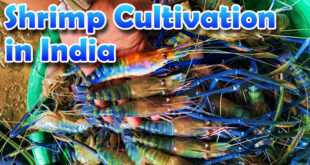These have to be restored to their original habitats on the T.N. coast in 48 hours
Unlike the other seizures in the past, officials of the Wildlife Crime Control Bureau (WCCB) faced a different kind of challenge when they recovered 20 live corals from a house in Dum Dum in north Kolkata. While there are routine reports of smuggling of birds, turtles, elephant tusks and rhino horns, instances of coral smuggling are rare. On interrogation, the 26-year-old accused, Upendranath Goswami, said he had received the corals from the Thoothukudi coast in Tamil Nadu, part of the Gulf of Mannar landscape. Goswami was allegedly trying to sell them to marine hobbyists. Located along the eastern coast between the island of Rameswaram and Thoothukudi, a cluster of islands in the Gulf of Mannar is home to an expansive reef population.
“If the corals need to be saved they should be restored in their natural reefs in Tuticorin. We have contacted the officials of Tamil Nadu Forest department and sought permission of the Court in West Bengal so that these corals can be restored to their natural habitat,” Deputy Director, WCCB, Eastern Region, Agni Mitra told The Hindu .
Court nod for return
A court in Barrackpore on Saturday granted permission for the live corals to be transported back to Tamil Nadu. The seizure was carried out jointly by the WCCB and Forest Directorate, West Bengal, late on Friday evening. All the hard corals seized are protected marine wildlife listed in Schedule-I of The Wildlife Protection Act, 1972 and any attempt of smuggling and commercially exploiting these resources involves a minimum term of three to seven years, Mr. Mitra added. WCCB officials said live corals are very sensitive to water parameters and they have temporarily engaged the accused under a custody bond ( zimmanama ) for maintenance of the corals.
After obtaining necessary clearances from the court, the live corals will have to be restored to the natural habitat within 24 to 48 hours. While in other cases of wildlife smuggling, the live animals or birds are released into nearby forests and suitable habitats, in this case the corals will be flown about 2,000 km to be restored to their natural habitation.
Better enforcement
Saket Badola, head of TRAFFIC India, a leading NGO working globally on trade in wild animals, said there were reports of corals being traded and more action should be taken by enforcement agencies to tackle the illegal trade. “Corals are facing threat of climate change and smuggling can be an added threat,” Mr. Badola said. Describing the smuggling of corals as a very serious issue, coral expert and scientist at the Zoological Survey of India (ZSI), Tamal Mondal, welcomed the effort on the part of the WCCB to restore the corals to their natural habitation. He identified the seized live corals under genus Goniopora sp, Favites sp and Symphyllia sp.
“It is not easy to extract a live coral from its reefs by bare hands; tools like hammers and chisel must have been used. This also indicates a smuggling network which needs to be busted to save the coral ecosystem,” Mr. Mondal said. Corals are considered to be among the most dynamic ecosystems, providing shelter, and physical and ecological support to marine flora and fauna.
The scientist said there are only four coral major reef areas in the Indian waters in the Andaman & Nicobar Islands, the Gulf of Mannar, Lakshadweep and the Gulf of Kutch, where all of three major types of reefs — fringing, atoll & barrier — are found.
Source : https://www.thehindu.com/todays-paper/tp-national/bengal-officials-race-against-time-to-save-rescued-corals/article25085771.ece
Check Also
India’s Deep Ocean Mission (DOM)
India’s Deep Ocean Mission (DOM) is an initiative to explore and harness the resources of the …
 Chinmaya IAS Academy – Current Affairs Chinmaya IAS Academy – Current Affairs
Chinmaya IAS Academy – Current Affairs Chinmaya IAS Academy – Current Affairs



